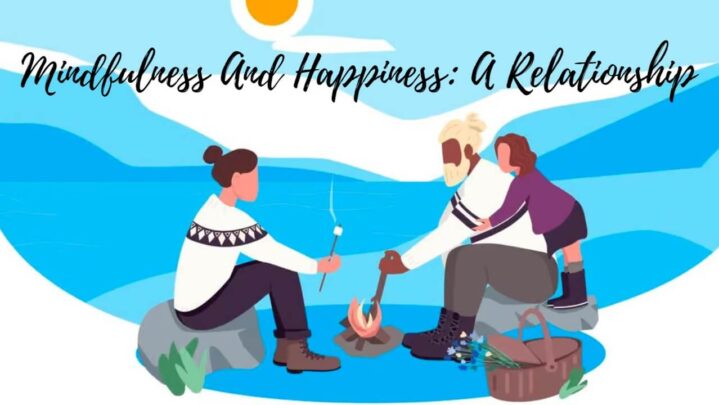Mindfulness techniques, such as meditation and yoga, have been demonstrated in studies to boost happiness and reduce stress. Participants in one research reported substantial gains in their overall well-being and happiness after completing a mindfulness-based stress reduction program. Another study discovered that daily mindfulness meditation was linked to higher levels of pleasant feelings and life satisfaction.
Mindfulness can also aid with emotional control, which is essential for happy maintenance. When we are attentive, we are better able to perceive and accept our feelings without getting overwhelmed by them. This enables us to respond to tough emotions in a more productive manner, rather than being imprisoned in negative mental patterns.
Furthermore, mindfulness can help us strengthen our relationships, which is a key aspect of happiness. When we are conscious, we are better able to speak effectively, listen actively, and demonstrate empathy. This can lead to stronger connections with people and more happiness in our relationships.
Furthermore, by turning our focus away from negative thoughts and onto the present moment, mindfulness can help to enhance our general view of life. We are more likely to appreciate and enjoy the simple things in life when we are present and aware, which may lead to higher emotions of contentment and happiness.
In addition to the above-listed benefits, mindfulness can aid to enhance physical health. Mindfulness activities have been revealed in studies to lower blood pressure, boost immunological function, and alleviate chronic pain. This is most likely due to the stress-relieving effects of mindfulness, as persistent stress may be harmful to physical health.
In summary, mindfulness and happiness are inextricably linked. Mindfulness techniques can boost general happiness and well-being, as well as emotional control, relationships, and attitude toward life. It is a technique for improving mental and emotional well-being and encouraging a better existence. While mindfulness can be beneficial in fostering happiness, it is not a miracle cure and should be used in concert with other good behaviors.
Also Read: The Sleep-Happiness Connection: How Sleep Aids Well-Being





